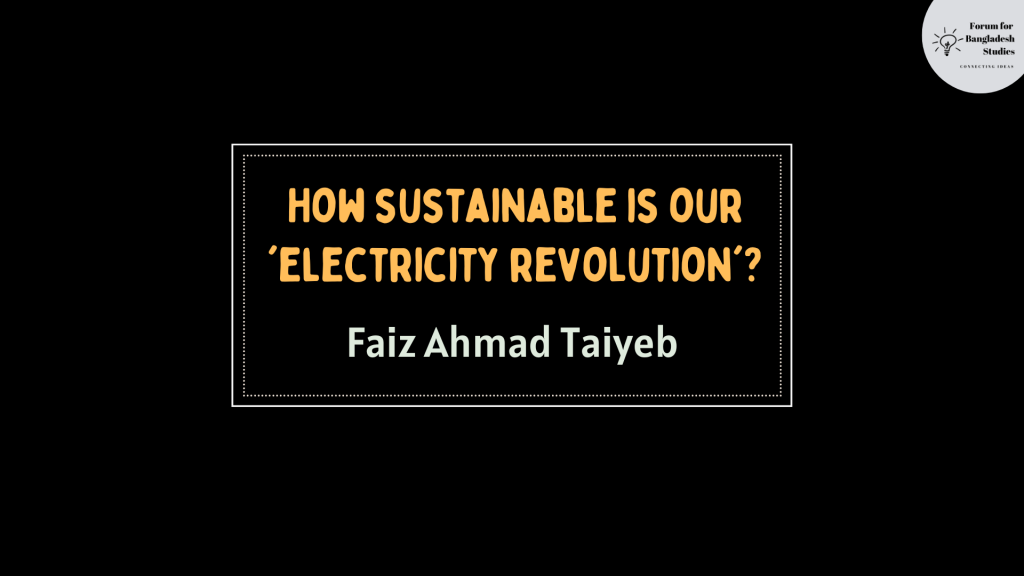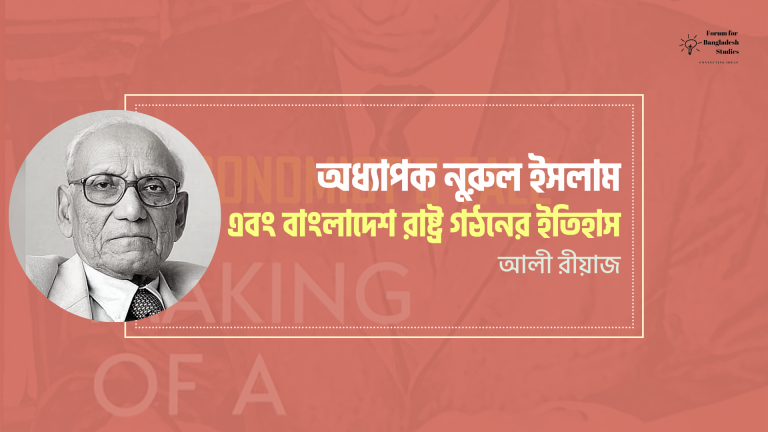On November 1, 2022, the State Minister for Power, Energy, and Mineral Resources Nasrul Hamid informed parliament that $28.3 billion was invested in the electricity sector between fiscal years 2009-10 and 2021-22, of which $9.73 billion was invested for private sector electricity production. The question is: why couldn’t such a huge investment save people from load-shedding?
The current electricity crisis can be attributed to five reasons. Firstly, there is an acute shortage of primary fuel such as oil, gas, and coal, alongside a dependency on fuel import. Secondly, we are going through an economic crisis and are faced with high capacity charges that are payable in dollars. Thirdly, the country’s investment in renewable green energy has been inadequate. Fourthly, there is a lack of coordination in production, transmission, and distribution infrastructure development projects. And lastly, our power generation centres and machinery are substandard and dysfunctional. Additionally, the dollar crisis has caused a huge amount of debt accumulation in terms of importing coal, oil, and gas. Inadequate transmission and distribution capacity are also exacerbating the crisis.
The government has not ensured uninterrupted supply of primary fuel prior to building electricity production capacity. Stable large-scale contractual or G2G imports were not focused on. Efforts to discover and acquire new gas reserves in the country and offshore areas have not progressed as expected. Nearly 50 percent of total oil and gas imports were from the spot market, endangering the country’s energy security. Politically motivated, commission-savvy spot market importing of primary fuel seems to have been the main motivator. Hence, it became difficult to keep power plants operational during times of necessity.
Private power plants are enjoying capacity charges at unjust rates even when they are not capable of producing electricity when necessary. The average production expenditure of the Power Development Board (PDB) has increased by 81 percent over the last one and a half years, with bills amounting to nearly Tk 28,000 crores between September 2022 and January 2023 for rental, IPP, and various government power plants.
At present, even though global energy prices have decreased, the government is not able to buy enough fuel due to the foreign currency crisis. New problems are worsening the import dues for oil, coal, and gas.
Due to commercial banks’ inability to pay back their LC debt, the import of oil has accumulated a significant amount of outstanding payments, approximately Tk 4,157 crores. Seven foreign companies have informed the Bangladesh Petroleum Corporation (BPC) that they will not supply oil until their outstanding payments have been cleared. Notable among the companies that the BPC owes for their supply of crude oil are Vitol Asia, Unipec, Emirates National Oil Company (ENOC), Numaligarh Refinery Limited (NRL), PetroChina in Singapore, and Indonesia’s Bumi Siak Pusako (BSP). The Indian Oil Company Limited (IOCL) has requested the BPC to clear its outstanding dues through the Indian Embassy in Bangladesh.
Even in terms of internal energy sources, there is a risk of load-shedding. Chevron, which contributes around 60 percent of domestic gas supply from gas fields, has reported arrears of about Tk 1,800 crores between September 2022 and February 2023.
Despite the dollar crisis, there are other infrastructure-related reasons for load-shedding. During the hot summer days when demand for electricity increases, more than 50,000 transformers of power distribution companies run at a risk of burning out if load-shedding is not conducted periodically. In other words, the investment for increasing the capacity for distribution infrastructure has been insufficient. Even after an investment of $28 billion, transmission and distribution capacity could not be proportional to installation capacity.
Another reason behind load-shedding is how maintenance of regional gas pipelines and coal shortages lead to closures of large power plants. The Rampal power plant has had to be shut down twice between January and April due to coal shortage.
A lack of investment in green and renewable energy is also a major reason behind increased load-shedding. A miniscule amount of our electricity is renewable. The remaining majority is produced via fossil fuels that have to be bought with dollars from domestic and foreign sources. Almost all new power plants are coal-powered. As a result, our energy and power sectors remain largely unsustainable.
The load-shedding problem is also worsened by inefficient thermal power plants and their low plant factor (capacity to operate continuously), and by the frequent maintenance of faulty power stations.
According to experts, production capacity should be kept 15 percent higher than demand, factoring in maintenance and overhauling. So, against the highest demand recorded in Bangladesh of 16,221 MW (on April 17), a production capacity of 18,000 MW would have been sufficient. But the PDB could not manage to generate more than 16,000 MW of electricity. This proves that, even keeping aside coal and gas supply issues, many of these power plants are simply charging high prices for their seemingly false installed capacity.
On April 18, State Minister Nasrul Hamid expressed his sorrow over unexpected load-shedding and cited reasons related to the heatwave. Sadly, his statement does not reflect reality.
It’s time to address the technical, operational, managerial, design and planning aspects of the energy crisis. Load-shedding is directly related to the economic crisis, corruption, and inconsistent planning. Despite more than $28 billion in investment, the energy sector has not improved sustainably, but has instead put the country in darkness by causing a deep “dollar drain”.




